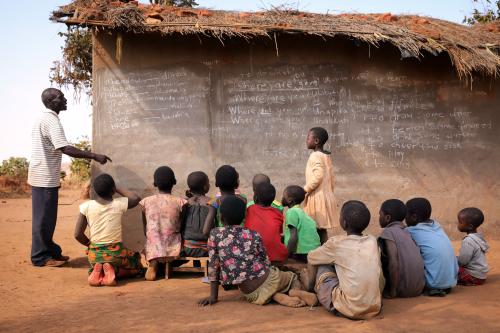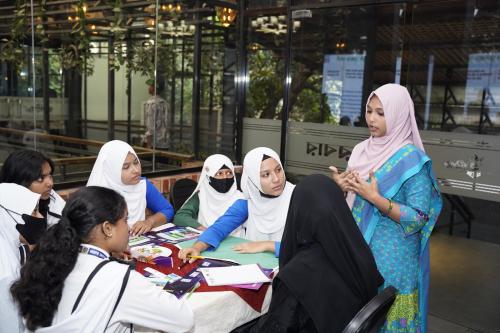Education is crucial for the cultivation of successful individuals, healthy communities, robust societies, strong economies, and healing the planet. Yet, while most available education measures show impressive improvements in access in low- and middle-income countries over recent decades, there remains a heartbreaking gap in educational outcomes between and within countries. This is partly because, while access to school has increased, the quality of learning still often languishes, even before the COVID-19 pandemic.
While there are many attempts to address low learning outcomes around the world, many efforts abide by a short-term project mindset, limited funding, and a focus on proof-of-concept pilots. However, small-scale efforts cannot solve the challenges within education systems today. Addressing contemporary educational challenges requires coordinated action among stakeholders, ongoing evidence of impact, and an emphasis on expanding and deepening the impact of any single intervention so it reaches more learners and works to change whole systems. In a word, it requires “scaling.”
Since 2014, the Center for Universal Education (CUE) at the Brookings Institution has sought to address the challenges of scaling impact in education through the Millions Learning project, which focuses on how and under what conditions quality education innovations scale. In 2020, Millions Learning joined the Global Partnership for Education’s (GPE) Knowledge and Innovation Exchange (KIX), a joint partnership between GPE and the International Development Research Centre (IDRC), to facilitate a cross-national, multi-team, design-based research and professional support initiative called Research on Scaling the Impact of Innovations in Education (ROSIE). ROSIE brings together researchers and practitioners working in 29 LMICs to study processes of scaling education initiatives and to deepen impact of their ongoing work.
The Center for Universal Education (CUE) has been studying alongside the 15 ROSIE collaboration teams to offer empirical analyses, insights, and recommendations for practitioners, policymakers, and funders around the world working to scale the impact of their efforts. Additionally, CUE has been pursuing a complementary qualitative study on how governments identify, adopt, and support education innovations to scale.
The following report and summary findings focus on emerging insights from the ROSIE teams’ scaling journeys organized within three broad categories: stakeholders (including teachers and school leaders), the enabling environment, and incentives. Along the way, the report also raises assumptions to interrogate and offers practical recommendations to consider.
Because this study is ongoing, these insights are provisional and will likely deepen and grow during subsequent rounds of data collection to be conducted during 2022 and 2023. A final report will be released at the end of 2023.
-
Acknowledgements and disclosures
This project is supported by the Global Partnership for Education Knowledge and Innovation Exchange (KIX), a joint partnership between the Global Partnership for Education (GPE) and the International Development Research Centre (IDRC). The views expressed herein do not necessarily represent those of GPE, IDRC, or their Boards of Directors.
The Brookings Institution is committed to quality, independence, and impact.
We are supported by a diverse array of funders. In line with our values and policies, each Brookings publication represents the sole views of its author(s).









